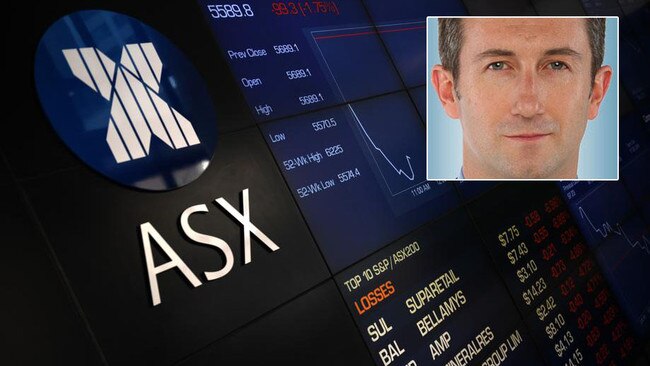Stockmarket slump appears without a trigger
Three clouds hanging on the horizon are the likely explanation for erratic market moves.

Normally it’s a bleak report, an ominous statement from a central banker or a chief executive. But this week’s plunge on Wall Street had no apparent trigger.
Analysts were scrambling to explain the sudden sell-off in US blue-chip stocks yesterday, a trend that has quickly spread, prompting some to call time on the nine-year US bull market.
The supposed “causes” — variously Italy, China, Donald Trump, trade tensions, and interest rate increases — have been with us for months, if not longer.
If this month has been a reminder that past performance is no guide to the future — October has traditionally been the best performing month for investors — it’s also a reminder of the uncertainty hanging over global economy.
I don’t mean whether global GDP will grow two-tenths of a percentage point faster or slower than last year, which doesn’t really matter, but rather whether the euro area will fracture, whether central banks will be able to extricate their economies from years of money-printing and ultra-low rates, and the outlook for wages, which ultimately sustain buying power.
The Dow Jones and the broader S&P 500 led a global sell-off yesterday, falling 2.4 per cent and 3.1 per cent, respectively. After a shocking few weeks, both indices have erased their gains since January. The VIX index, which measures the volatility of the S&P 500 based on eight different option prices, surged almost 50 per cent this week to a reading of 25, around its second-highest level over the past three years.
Taking its cue from the US, the local S&P/ASX 200 dropped 2.5 per cent yesterday, including a whopping 24 per cent plunge for AMP following a deal to sell its life insurance business.
The benchmark’s all-time high of 6750, reached in October 2007, is looking more elusive again.
So, a good time to buy? Share prices, here and abroad, should be rising. Populations are growing, unemployment is falling, new products are emerging, and the establishment of oligopolies across major sectors — airlines, banks, telecommunications et cetera — has given big firms greater pricing power, which naturally helps boost their share prices.
Aping conditions across the Pacific, where US corporate profits have surged, the National Australia Bank monthly survey consistently points to boom times for business here, which say they are enjoying record trading conditions and profitability.
Three clouds hang on the horizon that are the likely explanation for seemingly erratic moves on the markets. These matter more for our equity market than the vicissitudes of policy debates in Canberra.
First, Italy’s spat with the European Commission over the size of its budget deficit (its populist government wants more than 2 per cent, the commission less than 1 per cent) is emerging as a serious test of the euro and the EU’s authority.
“Grexit” would never derail the euro, but “Italeave” could. For all the heat and light Greece’s near default caused in 2010, it was and is a minnow compared to Italy, whose outstanding public debts equate to about 130 per cent of its economy, compared with about 35 per cent in Australia. At about 3.6 per cent this week, yields on longer-term Italian bonds are already nearing the level at which the government’s fiscal position isn’t sustainable.
The commission, IMF and the European Central Bank were able to ride roughshod over Greece’s government, even ignoring a popular vote to reject their bailout terms. This tactic will be much harder with Italy, a member of the G7.
The commission should perhaps be careful before it picks a fight with a government made up of far left and right parties, who might see electoral advantage in fanning anti-euro sentiment.
The other unknown is whether the US and other advanced economies, which are highly and increasingly indebted, can withstand higher interest rates.
For all the US President’s huffing and puffing about the Federal Reserve’s official rate increases, monetary policy remains highly stimulatory.
The Fed funds rate is barely more than 2 per cent, which puts the “real” rate at around zero given inflation remains anaemic. Even bullish forecasters don’t expect the central bank to lift it beyond 3 per cent.
Were there another downturn, fiscal and monetary policy have little room to assist.
Indeed, Trump’s large corporate tax cut, a big chunk of which appears to have been put towards share buybacks, could already be wearing off. In any case, cutting taxes to stimulate can happen just once.
The third and most important unknown is why wage growth remains weak, despite falling unemployment in most countries.
Henry Ford famously doubled his workers’ wages so they could afford to buy his cars. Amazon’s recent announcement that it would increase its standard wage to $US15 an hour for hundreds of thousands of staff appeared to have a similar justification.
Investors might hope for more corporate magnanimity to sustain their investment returns over the long haul.





To join the conversation, please log in. Don't have an account? Register
Join the conversation, you are commenting as Logout